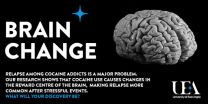(Press-News.org) People suffering from the common lung disease, chronic obstructive pulmonary disease (COPD), have an increased risk of sudden cardiac death (SCD), according to new research published online today (Wednesday) in the European Heart Journal [1].
When compared with people of the same age and sex who do not have the disease, those with COPD have a 34% increased risk of SCD overall, but their risk almost doubles more than five years after first being diagnosed with COPD. In COPD patients who have frequent exacerbations (sudden worsening of their symptoms, such as shortness of breath and cough), the risk of SCD increases more than three-fold after five years.
The Rotterdam study of nearly 15,000 people aged 45 and older is the first to show that COPD is associated with an increased risk of SCD in the general population and that this remains the case even when taking into account the fact that COPD is known to increase the risk of death from any cause.
The researchers say that their findings should help doctors to assess their patients' risk of SCD more accurately, as well as suggesting directions for further research into how to target preventive action more effectively for patients with COPD. Preventive treatments could include beta-blockers, implantable cardioverter defibrillators (ICD) to regulate heartbeat, or the withdrawal of drugs that prolong the interval between the two waves (Q and T) of the heart's electrical cycle, such as adrenaline, various cold remedies, some antibiotics and anti-depressants.
"Sudden cardiac death (SCD) is a major health problem; however, risk stratification remains difficult and probably not all risk indicators have been identified," they write in their EHJ paper. "Chronic obstructive pulmonary disease (COPD) has been associated with an increased risk of cardiovascular disease and with SCD in specific high-risk patient populations. This study shows that COPD is a risk indicator for SCD in the general population and that the risk increases with COPD severity. This provides directions for further measures to prevent SCD."
Dr Lies Lahousse, who led the research and is a post-doctoral researcher in the Department of Respiratory Medicine at Ghent University Hospital, Belgium, said: "We are carrying out further research to explore the mechanisms that could explain the high risk of SCD in patients with COPD. We are also looking at the links between the causes of arrhythmias - irregular heart beats - and SCD and COPD."
A co-author of the paper, Dr Marieke Niemeijer, a medical doctor and PhD student in the Department of Epidemiology at Erasmus Medical Centre, Rotterdam, The Netherlands, said: "The most important way to prevent COPD and SCD is not to smoke and to have a healthy lifestyle. If a person does develop COPD, then this is even more important, as smoking, an unhealthy and a sedentary lifestyle have been proven to increase the risk of SCD. Therefore, smoking cessation is not only important for the course of COPD but also for the development of heart problems and, subsequently, the occurrence of SCD."
SCD is a sudden, unexpected death caused by the heart ceasing to work. It is responsible for approximately half of all the four to five million heart disease deaths worldwide. It has a number of causes, which makes it difficult to assess adequately a person's risk and to plan prevention strategies. COPD is the world's third leading cause of death, with smoking as the most significant cause of the disease. It is also more likely to develop as people age. Chronic inflammation in the airways and lungs leads to progressive limitation of airflow, and patients have a two- to three-fold higher risk of developing diseases of the heart and blood vessels.
The ongoing Rotterdam study, which started in 1990 in The Netherlands, has been following 14,926 people living in the community, aged 45 and older, for up to 24 years. The participants have regular medical examinations and are continuously monitored so that deaths and medical conditions and diseases are recorded.
The researchers in The Netherlands and Belgium included 13,471 people from the study in their analysis; of these, 1615 were diagnosed with COPD. Of the 5197 (39%) study participants who died, 551 died due to SCD during the follow-up period and of these 82 (15%) had COPD and 469 (85%) did not. People with COPD who died due to SCD were more likely to die during the night.
INFORMATION:
[1] "Chronic obstructive pulmonary disease and sudden cardiac death: the Rotterdam study", by Lies Lahousse et al. European Heart Journal. doi:10.1093/eurheartj/ehv121
Marine ecosystems can be changed by night-time artificial lighting according to new research published in the Royal Society journal Biology Letters. The results indicate that light pollution from coastal communities, shipping and offshore infrastructure could be changing the composition of marine invertebrate communities.
Researchers from the Universities of Exeter and Bangor used a raft in the Menai Strait to monitor how artificial light at night affects the settlement of marine invertebrates into new habitats. Light is an important cue which guides the larvae of marine ...
New research by scientists at New Zealand's University of Otago suggests a need for a fundamental rethink of the evolutionary path of enzymes, the proteins vital to all life on Earth.
Enzymes catalyse a vast array of biologically relevant chemical reactions even in the simplest living cells.
Biochemist Dr Wayne Patrick says that people tend to imagine evolution as a slow and steady march from barely functional life forms in the primordial soup, towards a modern-day pinnacle of near perfection.
"When it comes to enzyme evolution, this is also the textbook version ...
MORE than two-thirds (69 per cent) of bowel cancer patients say they weren't advised to exercise regularly after their diagnosis - despite evidence that brisk physical activity is linked to better survival in bowel cancer, according to a Cancer Research UK study published today (Wednesday) in BMJ Open.
The research, from the Cancer Research UK Health Behaviour Research Centre at UCL (University College London), is the largest study of its kind. More than 15,000 bowel cancer patients* were asked about their current level of physical activity and whether they were advised ...
The coalition government derailed a successful programme that reduced salt content added to foods by industry, argue experts in The BMJ this week.
A poor diet is the leading cause of death and disability in the UK and worldwide. Large amounts of salt, for example, are added to food by industry and eating too much can raise blood pressure, a major factor associated with strokes, heart failure and heart attacks.
The UK's Food Standards Agency (FSA), established in 2000, became a "world leader" in improving nutrition and pioneered a salt reduction programme by working ...
Calorie counts should be mandatory on all alcoholic drinks as a matter of urgency, argues a leading public health doctor in The BMJ this week.
Fiona Sim, Chair of the Royal Society for Public Health, says alcoholic drinks contribute to obesity and the law "should require restaurant menus and labels to make energy content explicit in addition to alcohol content."
She explains that, since 2011, packaged foods in the European Union have been subject to regulation requiring labelling with their ingredients and nutritional information, including energy content (calories). ...
Cocaine use causes 'profound changes' in the brain that lead to an increased risk of relapse due to stress - according to new research from the University of East Anglia.
New research published today in The Journal of Neuroscience identifies a molecular mechanism in the reward centre of the brain that influences how recovering cocaine addicts might relapse after stressful events.
Importantly, the study identifies a potential mechanism for protecting against such relapses with treatment.
The research team looked at the effects of cocaine in rat brain cells (in vitro) ...
Women diagnosed with breast cancer who previously breastfed their babies had a 30 percent overall decreased risk of the disease recurring, according to a new Kaiser Permanente study published in the Journal of the National Cancer Institute. In addition, researchers found that the protective effect of breastfeeding was more pronounced for tumors of particular genetic subtypes, including the most commonly diagnosed of all breast cancers.
The study involved 1,636 women with breast cancer who completed a questionnaire that included breastfeeding history. Additional medical ...
One life-threatening complication of lung cancer surgery is the formation of blood clots in the lungs (also called pulmonary embolism - PE) or in the legs (also known as deep vein thrombosis - DVT). Together, they would be defined as venous thromboembolic events (VTE). Several presentations at AATS 2015 shed new light on this serious problem. In the first prospective study of its kind, the incidence of VTE was found to be higher than previously reported, with a 5.4% VTE-specific mortality rate. Of concern to clinicians, most events were asymptomatic and occurred after patients ...
Children with attention deficit hyperactivity disorder, or ADHD, are significantly more likely to have an eating disorder -- a loss of control eating syndrome (LOC-ES) -- akin to binge eating, a condition more generally diagnosed only in adults, according to results of a new Johns Hopkins Children's Center study. The findings, reported ahead of print April 9 in the International Journal of Eating Disorders, suggest a common biological mechanism linking the two disorders, and the potential for developing treatment that works for both.
Though many children with ADHD may ...
Current public health guidelines recommend that only gay men and people with HIV should be routinely screened for extragenital gonorrhea and chlamydia, given the high burden of these sexually transmitted infections (STIs) in this at-risk population.
However, a new Johns Hopkins Medicine study that looked at over 10,000 people who attended an STI clinic in Baltimore has found that the occurrence of gonorrhea or chlamydia in extragenital areas like the throat or rectum is also significant in women, particularly younger women. The findings will be published in the May issue ...

